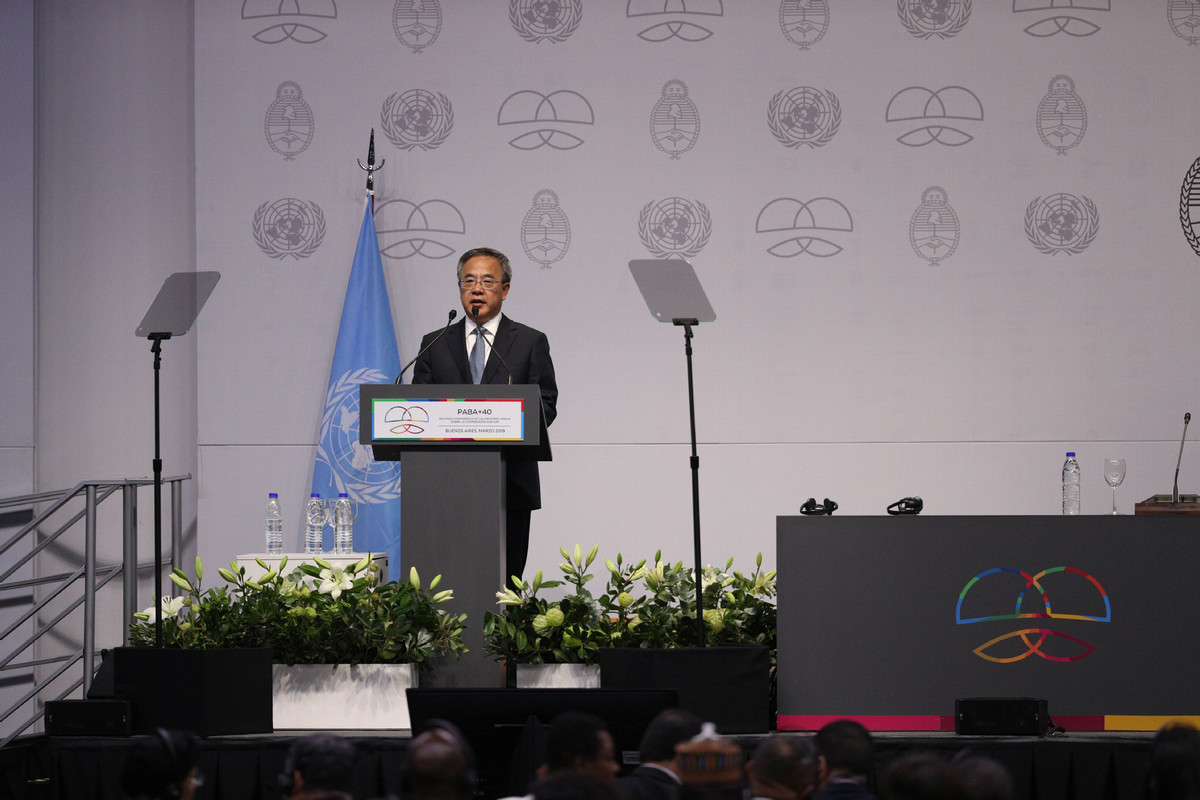Focused on 'sustainable' deadline
By HONG XIAO at the United Nations | China Daily Global | Updated: 2019-03-22 00:14

When it comes to South-South Cooperation, China is a firm advocate, active participant and important contributor, China's Vice-Premier Hu Chunhua said at a United Nations conference on Wednesday in Buenos Aires, Argentina.
The three-day meeting marks the 40th anniversary of the UN Conference on Technical Cooperation among Developing Countries, which convened in Buenos Aires in 1978 and set a goal of sharing resources among developing nations.
More than 1,000 participants and high-level delegations from dozens of countries are now meeting in Buenos Aires to debate the importance of South-South Cooperation as a tool for achieving the UN's Sustainable Development Agenda by its 2030 deadline.
Hu stressed the importance of "South-South Cooperation" in a world where there is a "real imbalance" between developed and developing countries.
"We have honored South-South Cooperation values, which means seeking welfare for all," Hu said. "Countries should be encouraged to participate in the way they feel best, taking advantage of their capabilities and taking into account their levels of development."
Hu said that China, addressing the needs of different entities, has provided a total of 166 countries and international organizations with more than 400 billion yuan (about $60 billion) worth of assistance to help implement more than 5,000 programs and projects in a wide range of fields.
In 2018, China's trade with other developing countries amounted to $1.77 trillion, and its investment in the developing world in particular has hit $29.1 billion since Chinese President Xi Jinping attended the UN Sustainable Development Summit in 2015.
China has remained steadfastly committed to multilateralism and the principles of sovereignty, equality, mutual benefit and non-interference, Hu said.
Underlining the need to expand South-South Cooperation into areas such as trade, investment, finance, infrastructure and environment, he said such assistance should be tailored to fit countries' varied capacities.
Pointing out that China seeks to help developing countries gain access to the Chinese market with their products, Hu emphasized that China would maintain a "zero tariffs policy" for imports from less developed countries "to encourage them to export more to China".
"China is opening its doors wider and wider to the world, providing fellow developing countries with more and more market opportunities," Hu said.
Policies will also encourage and expand investment in sectors such as business, infrastructure and clean energy in other developing countries.
China has pledged to fulfill its commitment to invest more than $12 billion in less-developed countries by 2030, Hu said.
China is also finding ways to make its assistance more effective and is generating new momentum for South-South Cooperation through the Belt and Road Initiative.
The second Belt and Road Forum for International Cooperation, scheduled to take place in Beijing next month, "is set to inject fresh impetus into South-South Cooperation," Hu said.
Maria Fernanda Espinosa Garces, president of the United Nations General Assembly, said the world today is very different from the one that existed 40 years ago.
"It is quite clear that the countries of the South have a more decisive role to play," Garces said.
For middle-income countries, landlocked developing countries and the least developed countries, South-South Cooperation has been essential in helping them overcome myriad challenges, she explained.
It is critical to continue to provide these countries with technical and financial resources, she said, stressing that transregional technical exchanges between China, India and Brazil were essential for the future of sustainable global development.
























